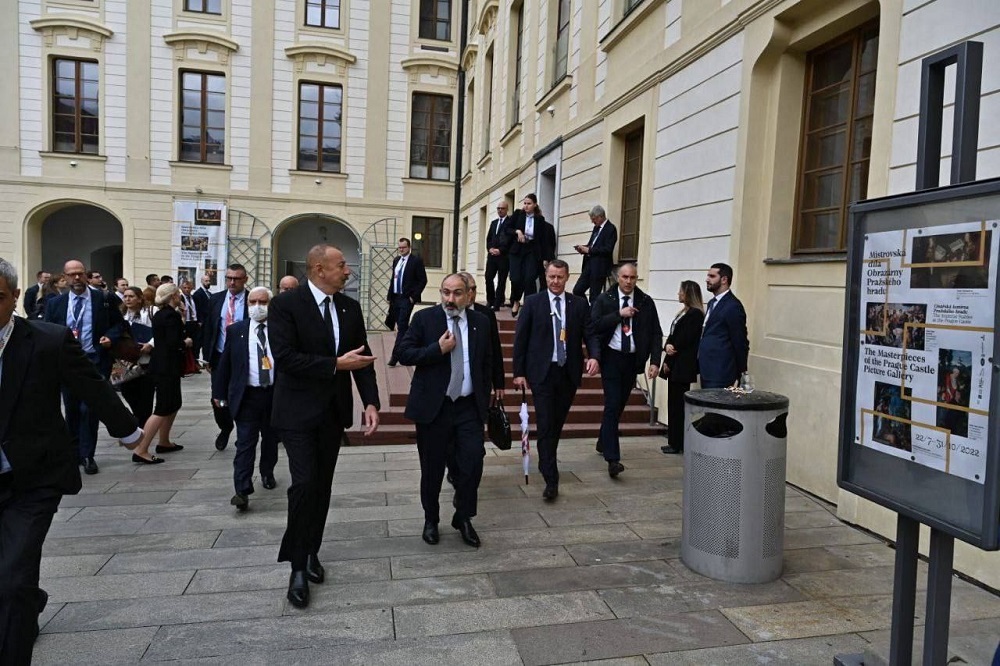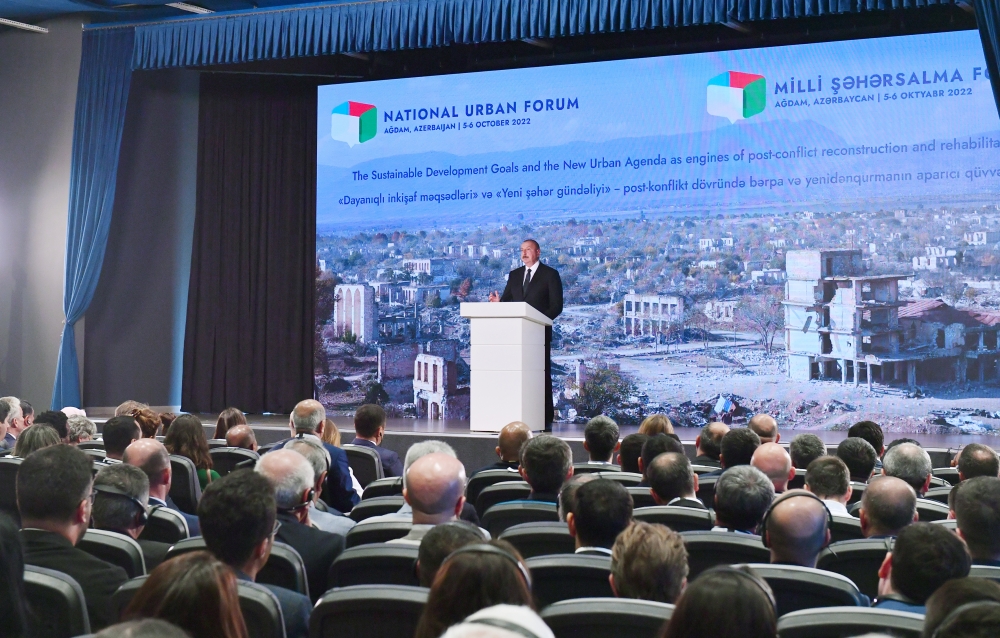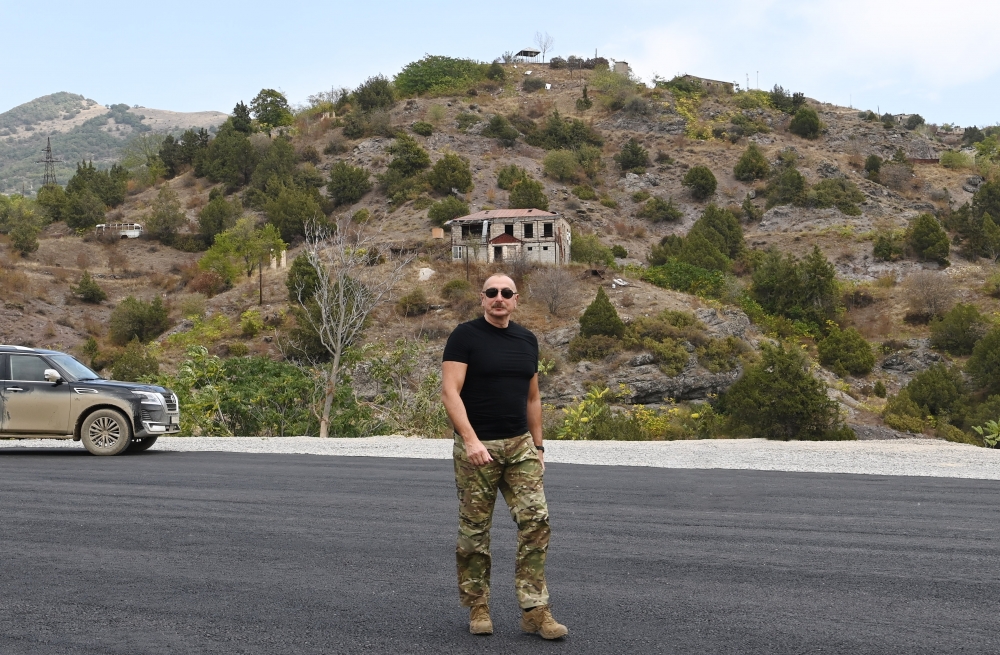Will the Prague statement create peace between Armenia and Azerbaijan? News and analysis from Yerevan and Baku
Meeting in Prague
At a meeting in Prague, Azerbaijan and Armenia recognized each other’s territorial integrity at the level of heads of state, according to a statement made after the summit.
- “What does Azerbaijan want?” – publication of a list of demands: Reliable source or Pashinyan?
- “What else is treason?” Azerbaijan discusses video of execution of captured soldiers
- Negotiations between Foreign Ministers of Armenia and Azerbaijan: mediators remain behind the scenes
According to experts, the agreement reached on the recognition of territorial integrity between Azerbaijan and Armenia can bring the positions of these countries closer in the process of preparing a peace treaty and delimiting the interstate border. But is everything so simple?
We have collected here the latest news from Baku and Yerevan, as well as the opinions of political observers from both sides.
Information from Baku
What did Aliyev talk about in Prague?
Between the first and second meetings with Armenian Prime Minister Nikol Pashinyan, through the mediation of European Council President Charles Michel and French President Emmanuel Macron, Azerbaijani President Ilham Aliyev gave an interview to Azerbaijani TV channels.
Aliyev said that Azerbaijan and Armenia are gradually approaching peace. “The peace process has been given impetus,” he said.
“The ministers need to meet for the second time soon, after which we proposed that working groups also meet, working groups of both countries, which perhaps will prepare the text of the peace agreement,” the president added.
Aliyev also discussed the topic of Karabakh and the future of the Armenian population of this region:
“Armenian units have not yet been withdrawn from our lands. We demand this. True, some of them have been withdrawn, but they remain on our land. I hope that this will also be put to an end, since the entire world community is already openly aware that Karabakh is Azerbaijan! We have said this all along – during the occupation, during and after the war. Today the world community not only realizes this truth, but also talks about it. The Armenians living in Karabakh are our citizens, and we do not intend to discuss with this or that country, including Armenia, their fate, their future. This is our internal affair and the Armenians will have the same rights as the citizens of Azerbaijan. In any case, they can be sure that their life, the life integrated into the Azerbaijani society, will be much better than the current one.
“How the life of the Armenian population in Karabakh will be arranged is a separate story. We plan to intensify consultations within our foreign policy bloc and continue informal contacts with representatives of the Armenian population of Karabakh. I must say that such contacts have already been underway for some time. And I think that they will lead to a full understanding by the main population, which still lives in the zone of responsibility of the Russian peacekeeping contingent, that there is simply no other way than integration into Azerbaijani society. Whoever wants to live as a citizen of Azerbaijan will not regret it. And if for some reason this does not suit someone, then they can choose another place of residence for themselves,” Aliyev stated.
Comment from Baku
The most important point in the statement released after the meeting in Prague is the mutual recognition of the territorial integrity between Azerbaijan and Armenia on the basis of the Alma-Ata agreement of 1991, political observer Agshin Karimov emphasized.
In his opinion, this will become a fundamental factor for the work of delimitation commissions:
“I think the second important result is that this statement leaves no chance for Armenia to interfere in the Karabakh issue and secures for Azerbaijan the right to regulate the rights of the Armenian population in this region of the country.
“Thirdly, while the parties will no longer be able to avoid peace, but it is quite possible that Armenia will not agree with the volume of Azerbaijan’s demands regarding the delimitation of borders. This may serve as a new starting point for the start of military operations on the border. Important here is also the condition that Azerbaijan puts in the negotiations: the creation of a buffer border zone.”
Karimov noted that the presence of an EU mission in Armenia could seriously puzzle Russia, and the Kremlin is likely to regard it as a low blow. “The result of such assessments may be new mechanisms for punishing Armenia by Moscow,” the political observer said.
He also recalled that Azerbaijan did not agree with such a mission on its territory, because “that step in the current environment could become a real threat to security in the region.”
Karimov also shared his predictions about further developments against the backdrop of the agreements reached in Prague:
“1. Nearing a peace treaty shows that the draft of this document is ready. Despite this, Azerbaijan will try to make a series of conditions for receiving guarantees from Armenia.
2. Yerevan will try to add disclaimers to the peace agenda, but may encounter pushback from Baku.
3. Russia will not be upset by the results of the Prague meeting yet, but if the US tries to extract diplomatic benefits from them, Moscow will respond.
4. I do not believe that Russia will continue to support Armenia at all levels, which is trying to turn the vector of relations towards the West. For this reason, the Kremlin will certainly increase its stakes on Azerbaijan, and will put pressure on Armenia.”
What Yerevan thinks of the negotiations in Prague
After two rounds of negotiations in Prague, only the text of the statement adopted by the parties has been published in Armenia so far. It was supplemented by a short post on Twitter by Nikol Pashinyan:
“In Prague, I reaffirmed our proposal to unblock all regional roads. Azerbaijan again did not give a positive answer. I confirm that Armenia is ready to unblock all regional roads, fully respecting our sovereignty and our legislation.”
In fact, the Armenian prime minister says that Azerbaijan continues to demand that Armenia provide a “corridor” through the south of the country, the Syunik region, a road that the Armenian side will not control. From Pashinyan’s text, it becomes clear that Armenia also continues to insist that the roads will be provided, but with the preservation of sovereign control in these territories.
Immediately after the talks the Prime Minister of Armenia left Prague for St. Petersburg, where an informal CIS summit will take place, so no other statements and explanations are expected from him yet.
A commentary on the text of the statement from the Armenian authorities can be considered a post by Ambassador-at-Large Edmon Marukyan on Facebook. He singled out two important points for the Armenian side:
1. “Azerbaijan has agreed to cooperate with the EU civilian mission, which will be located along the border.”
And this, according to Marukyan, means that “the subsequent aggression of Azerbaijan will be monitored on the spot; moreover, the already occupied part of the sovereign territory of Armenia will be recorded.”
He mentions the statement of the EU High Representative for Foreign Affairs and Security Policy, Josep Borrell, on October 5, 2022, that “the European Union wanted to send an observation mission to the contact zone, but due to Azerbaijan’s opposition, the mission was never sent.”
2. “Azerbaijan agreed to recognize Armenia in accordance with the UN Charter and the Alma-Ata Declaration, after which Azerbaijan can no longer make any territorial claims to the sovereign territory of Armenia in the process of delimitation. Which also means that the Azerbaijani armed forces must withdraw from the territories they previously occupied.”
Commentary from Yerevan
According to political observer Hakob Badalyan, Armenia and Azerbaijan are trying to “reach a certain agreement on the inviolability of borders.” He says this is evidenced by a reference to the Alma-Ata Declaration, a document in which both countries signed a protocol on territorial integrity.
Badalyan emphasizes that now it is necessary to understand how this agreement will be enshrined in a peace agreement.
“It is known that Yerevan also raises the issue of the security and rights of Nagorno-Karabakh. This circumstance must be somehow fixed in the agreement, otherwise this agreement will turn into a trap, where Artsakh will become an internal problem of Azerbaijan, as they say in Baku,” he told JAMnews.
Speaking of the deployment of the EU civilian mission on the Armenian-Azerbaijani border, the expert points out that these are observers, not the military. Therefore it implies a much lower mission status, a lower degree of responsibility:
“I can’t imagine what result the civil mission will yield, how much it will contain Azerbaijan. Especially if we take into account the fact that the motives for destabilization in our region have much deeper military and political roots.”
According to the analyst, the agreement on the placement of observers was made only in order to show that the meeting in Prague yielded some results.
On the other hand, he notes that the deployment of a military observation mission is a complex and multi-level issue in terms of coordination:
“The question arises whether France or any other country is ready to take responsibility for the situation on the Armenian-Azerbaijani border with the participation of military observers. Will Azerbaijan, Turkey, Russia agree to involve the mission of EU military observers?”
There are many questions related to the civil mission. For example, why would Azerbaijan cooperate with the mission “exactly to the extent that it concerns it”? According to Badalyan, it will be possible to assess the results of the meeting held in Prague and the current situation only after receiving answers to these and many other questions.
“One thing is clear: Armenia is interested in speedy border regulation so that Azerbaijan is deprived of the opportunity to turn its military advantage into a political one. So that Azerbaijan finds itself in a situation where it will be clear that any act of destabilization will entail political responsibility. It’s hard to say how close we are to that. Clear mechanisms are not yet visible,” the expert maintained.
Hakob Badalyan believes that it is impossible to carry out the process of demarcation and delimitation quickly. He says that even in the case of the Armenian-Georgian border, where there is no conflict, the process has been going on for many years.
The analyst says that there are two formats for the settlement of Armenian-Azerbaijani relations: Moscow and Brussels. It is difficult to say whether the quadrilateral will become a new format. Badalyan recalls that on the initiative of Macron in March of this year, a video conference was held in the same fashion.
“It is difficult to say whether we are dealing with an already established format or whether France is simply trying to use its capabilities in order to stay in the game, to show its place and role,” Badalyan concluded.





















